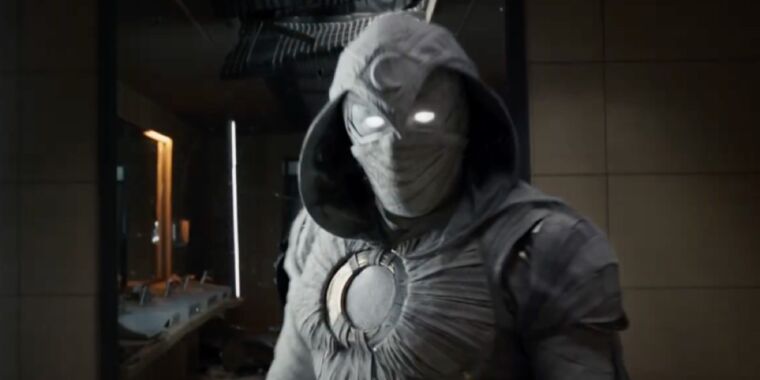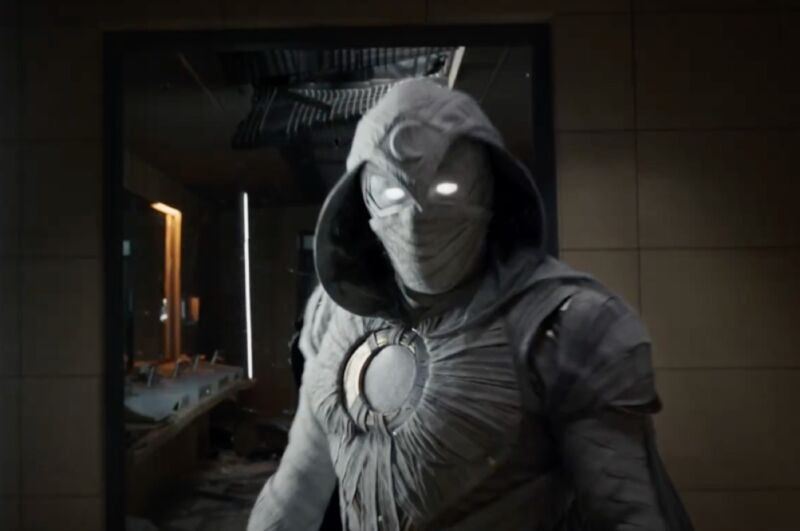
YouTube/Marvel Studios
Can anything good ever come from gods meddling in the affairs of men? That’s the underlying riddle in Moon Knight, the latest spin-off series in Phase Four of the MCU, and in the case of the series, the answer is a resounding yes. Starring Oscar Isaac as a tormented man with Dissociative Identity Disorder (DID), the series has more in common with the Netflix defenders series than with recent Marvel rates like WandaVision, The Falcon and the Winter Soldierand loki. But instead of being set in New York City’s Hell’s Kitchen, it tells a unique story of superhero origins, rich in symbolism and Egyptian mythology.
(Some spoilers below for the comics and the TV series. All the major reveals are at the very end, and we’ll let you know when we get there.)
As I’ve written before in the comics, Marc Spector (aka Moon Knight) is the son of a rabbi, marked at a young age by the Egyptian moon god Khonshu as the god’s avatar on Earth. But Khonshu is a supernatural entity with many aspects to its nature – and also consists of phase with normal time and space – so forging a psychic connection with the human Marc damages the man’s mental health.
Marc develops DID and eventually becomes a mercenary. He is hired by the ruthlessly amoral Raoul Bushman for a job, killing an archaeologist who has uncovered an Egyptian tomb. Marc rescues the archaeologist’s daughter, Marlene, leading to a big fight with Bushman. Marc loses the fight and is left for dead, but the locals carry him into the grave, leaving him in front of a statue of Khonshu. Khonshu revives and heals the dying Marc.
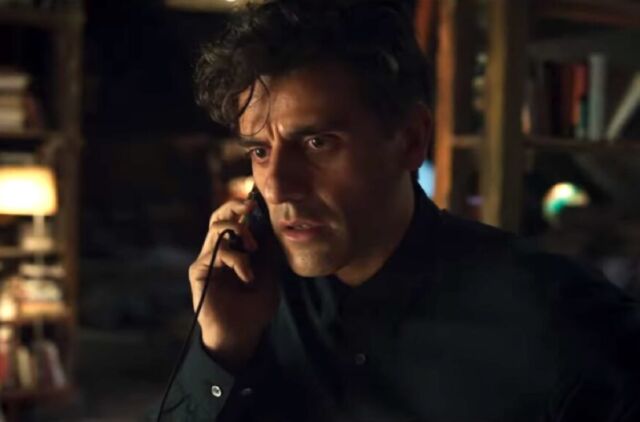
Marvel Studios/Disney+
When Marc returns to the US, he channels all the money he earned as a crime-fighting mercenary as Moon Knight, recognizable by his silver cape. He has four other different identities in the comics: a billionaire businessman named Steven Grant, a cab driver named Jake Lockley, a suitable consultant named Mr. Knight, and a little red-haired girl named Inner Child. Showrunner Jeremy Slater has kept the main lines of the original story for the series, with a few key differences.
The first personality we meet is Steven Grant – not a billionaire, but a clumsy, mild-mannered British fellow who works in a gift shop in a London museum, eager to share his knowledge of Egyptian history and culture as a guide. His professional and romantic prospects are bleak as he is plagued by blackouts. He even goes so far as to chain himself to the bed at night, but in unfamiliar surroundings he still often regains consciousness.
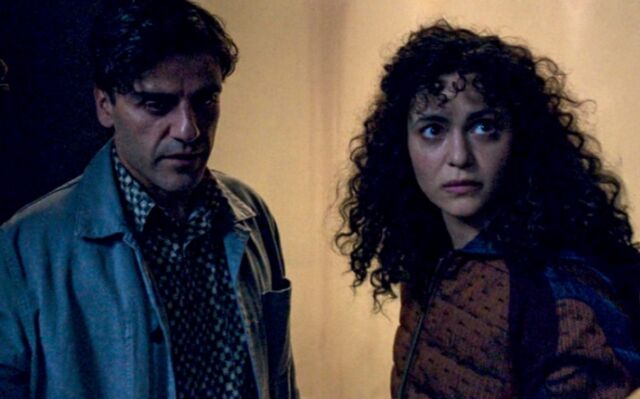
Marvel Studios/Disney+
One of those blackouts kicks off the events of the show. Steven wakes up in the Austrian Alps and finds himself in the middle of a showdown with Arthur Harrow (Ethan Hawke), a charismatic cult leader who demands Steven give him an Egyptian scarab that he happens to be holding. A mysterious force prevents Steven from doing so, while a voice in his head complains that “the idiot” is back in charge. Steven blacks out again and finds himself covered in blood, with the bodies of Harrow’s men all around him. More blackouts and a chase to follow. Let’s say that switching on and off while driving at high speeds on a narrow mountain road – with heavily armed evil henchmen in pursuit – is not a safe way to travel.
It’s a very effective opening to this series as we share Steven’s disorientation and confusion as he tries to understand what’s happening to him. Finally, Marc Spector, the mercenary, reveals himself and explains that he is the avatar of Khonshu, an outcast among the Egyptian gods for his crusade against the injustice of mankind. (F. Murray Abraham plays Khonshu, while Karim El Hakim physically portrays him.) Marc is estranged from his wife, Layla El-Faouly (May Calamawy), the daughter of an Egyptologist who was murdered by mercenaries.
As for Harrow, he was once the avatar of Khonshu, but changed his allegiance to the Egyptian goddess Ammit, who is held captive by the other gods. She is even more radical than Khonshu, condemning people’s hearts for the good or evil they will do, not just the sins already committed. The scarab will reveal the location of Ammit’s tomb so that Harrow can release her and impose her judgment on the world on Ammit. Marc and Steven must figure out how to share the body and work together to thwart Harrow’s plan with Layla’s help. Oh, and there could just be a third personality lurking in their shared body that only comes out when things go right real bad.
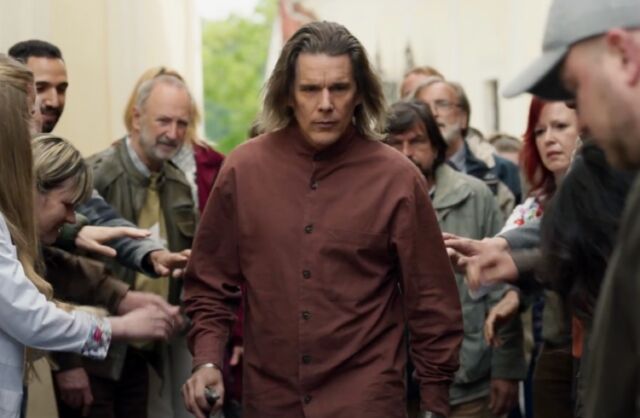
YouTube/Marvel Studios
Slater proves himself a gifted storyteller, weaving all the threads of this complicated story into a seamless whole as he explores themes of identity and recovery from trauma. Bonus: The whole series is beautifully shot, with great set and costume design. It’s in many ways the hero’s classic mythological journey, right through to the journey to the afterlife, but much of that journey takes place in the mind(s) of Marc and Steven. That kind of internal psychological journey can be difficult to portray in a consistently engaging way, but Slater successfully manages it. I especially appreciated the skillful symbolic use of mirrors to convey a broken self.
Much of the show’s success is also due to Isaac’s compelling performance. He seems to flutter effortlessly between two distinctive personalities, complete with unique accents and body language, and handles the action sequences with confidence. Native Brits will no doubt cringe at Isaac’s supposedly London accent, but the actor has said he deliberately made it “bizarre and unconvincing”. It’s what a traumatized boy splitting in two would think of as a British accent, so for my money the choice makes sense narratively.
